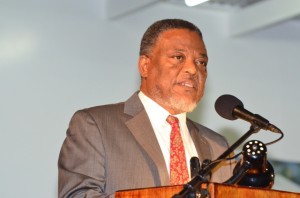By Prime Minister Samuel Hinds –
Over the last three years, I have been advised, on many occasions, that Guyana should start preparing for a find of lots and lots of oil, off our shores. “Let’s not count our chickens before they are hatched,” I have cautioned, trying to resist the seduction in contemplating such good fortune. Such caution notwithstanding, in January, I attended the Annual Energy Sustainability Week in Abu Dhabi, United Arab Emirates (UAE), and sought to learn, on the ground, as much as I could from the example of the UAE: of how Guyana might be if lots and lots of oil were found off our shores. If we are to benefit from such a find, we must be prepared for a wide opening of our doors to many, to provide us with the goods and services of a better life, while earning for themselves, without any of us begrudging them a better life also and there will be a challenge for us, not to pass our time idly by, but to take the opportunity to be the best persons we could be. We don’t become a Usain Bolt, a Clive Lloyd or Shivnarine Chanderpaul, a Ray Luck or a Rihanna, a Bill Gates or a Steve Jobs, without hours, leading into years of steady focus, dedicated study, practice, and application. A find of lots and lots of oil would open such a door for us.




